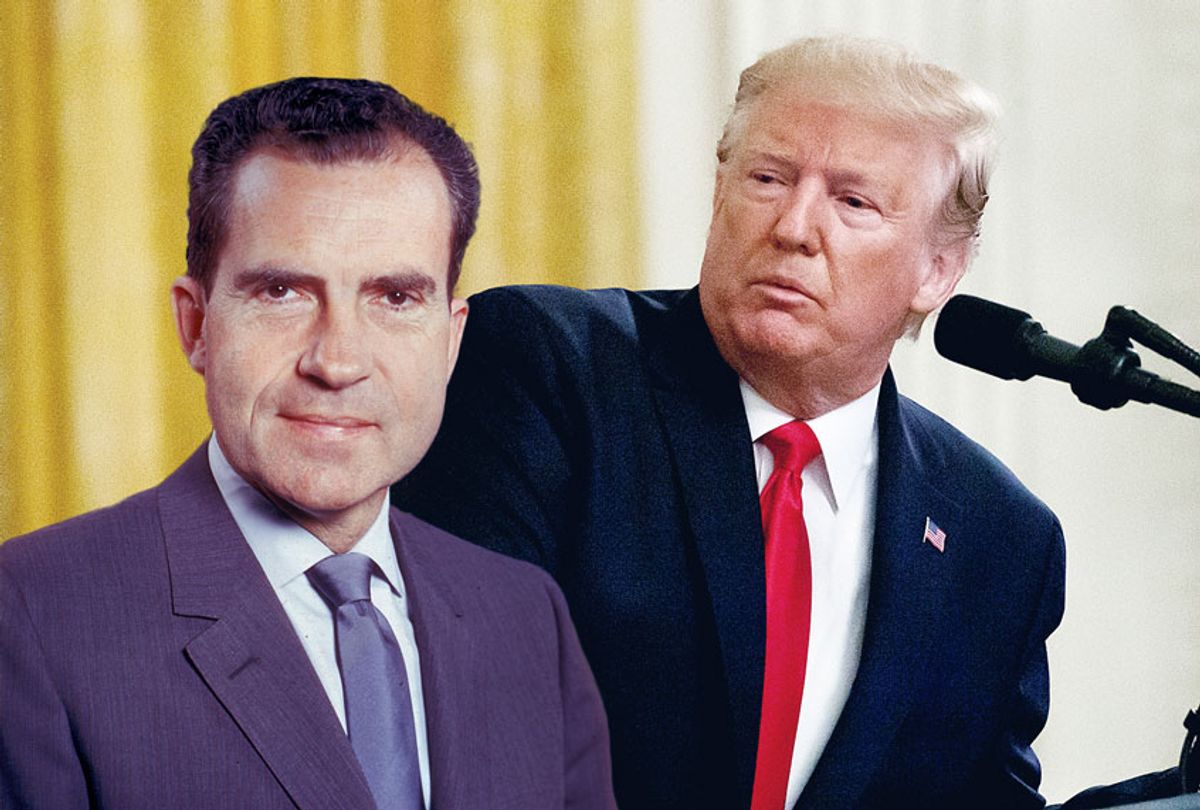Jill Wine-Banks, now 76, has vivid memories of Richard Nixon's presidency and the Watergate scandal: the Chicago-born attorney was part of the U.S. Department of Justice's Watergate prosecution team and reported to Special Prosecutor Leon Jaworski. In recent months, Wine-Banks has had much to say about the Ukraine scandal and the impeachment of President Donald Trump — and when she appeared on Lawrence O'Donnell's show on MSNBC on Monday night, February 24, she explained why she believes that Trump is more dangerous than Nixon.
When O'Donnell asked Wine-Banks (author of the new book, "The Watergate Girl: My Fight for Truth and Justice Against a Criminal President") who was worse — Nixon or Trump — she responded, "They're both bad, but there is no question in my mind that Donald Trump is a much more existential threat to democracy than Richard Nixon was. And when you talk about vindictive and the purges — I would say that Nixon was vindictive, and he retaliated against anyone he saw as not being loyal to him. But he didn't pull out people from the government. He didn't replace them with people who would do his bidding, like Attorney General Barr and so many others. And that's what Donald Trump is doing, which hurts the institutions of government and really threatens democracy in a way that Nixon didn't."
Wine-Banks went on to say that "during Watergate, the system worked. (Nixon) ended up resigning. He was forced out of office. And now, we have the Republicans in the Senate saying, 'Not guilty. Oh, yes, there's enough evidence to show that he committed all the acts that are charged.'"
O'Donnell noted that in 1974 — the year in which Nixon resigned as president — the "arch-conservative Republican" Sen. Barry Goldwater showed his "sense of decency" when he called for Nixon's resignation despite the fact that Nixon had been "very, very helpful" to the Arizona senator's 1964 presidential campaign. And Wine-Banks responded that there were other prominent Republicans who also stood up to Nixon during Watergate, including Attorney General Elliot Richardson and Deputy Attorney General William Ruckelshaus. During the infamous Saturday Night Massacre of 1973, both Richardson and Ruckelshaus resigned rather than obey Nixon's order to fire Special Prosecutor Archibald Cox.
"Back then," Wine-Banks recalls, "we had three networks — and they all had the same facts. Now, we have what are called alternative facts, which are lies basically. There can't be alternative facts; there are facts and there are non-facts. And people actually believe what Donald Trump says even though it is contradicted by evidence in plain sight."
Watch the video below:


Shares